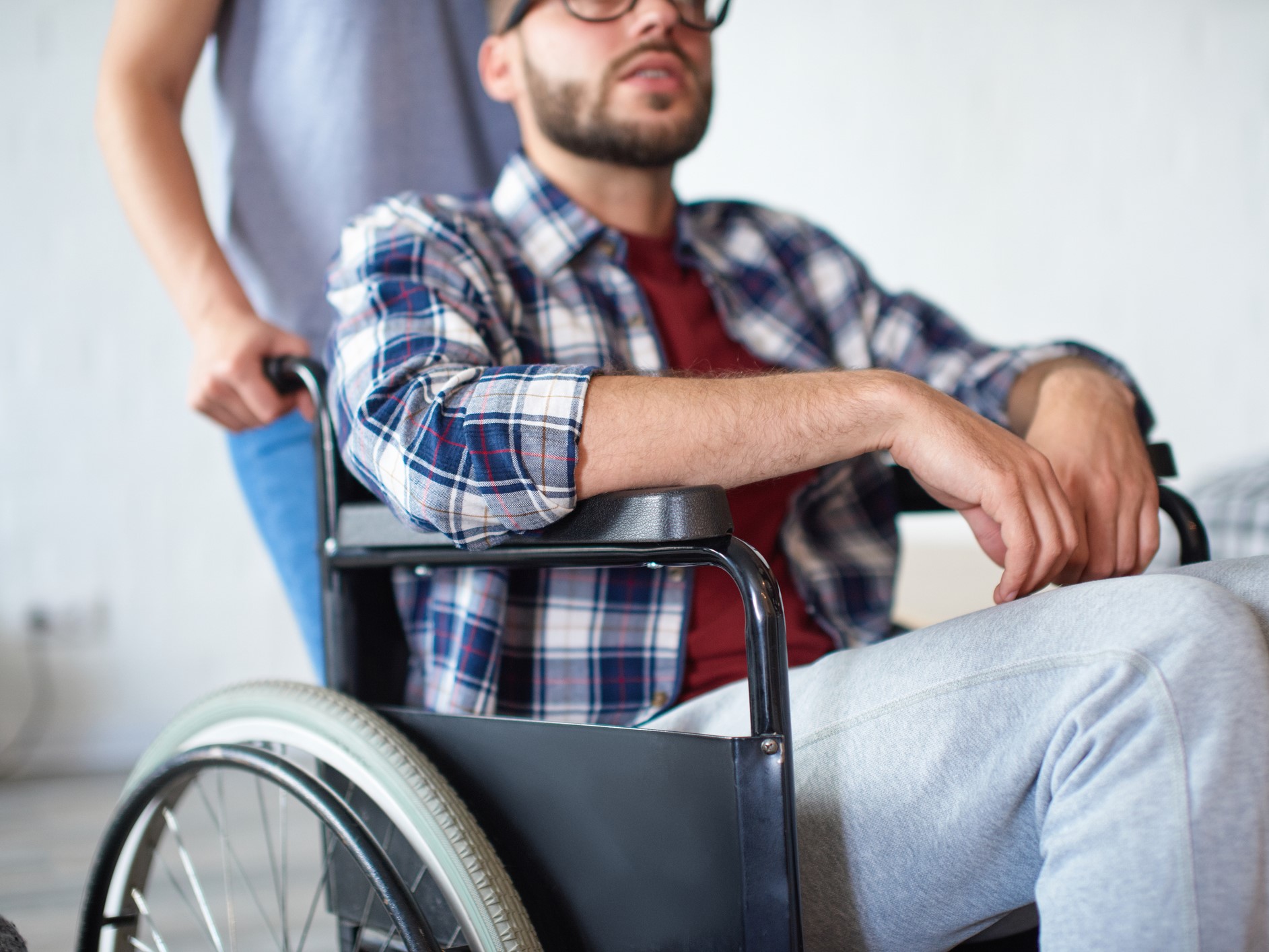
Invisible Injuries
After a car accident, it’s common to feel shaken or disoriented, but sometimes the absence of immediate pain can be misleading. Many injuries, such as whiplash or concussions, may not show symptoms right away. These “invisible injuries” can take hours or even days to manifest. By the time symptoms appear, the injuries may have already worsened, making treatment more complicated.
Getting a thorough medical evaluation immediately after an accident ensures that any potential injuries are identified and treated promptly. Early diagnosis can prevent complications or long-term health issues. Moreover, understanding the full extent of your injuries early on can facilitate more effective treatment plans, potentially reducing recovery time. It also offers peace of mind, knowing that any hidden injuries are being monitored and managed by professionals.
Shock and Adrenaline
During an accident, your body releases adrenaline, which is a hormone that can mask pain. This natural response might make you feel like you haven’t been injured when, in reality, you have. Adrenaline can provide a temporary sense of well-being, but this is misleading and can delay seeking necessary medical care. That’s why it’s essential to let a healthcare professional evaluate your condition. They can detect injuries that you might not notice due to the adrenaline rush.
Adrenaline’s effects can also lead individuals to make poor decisions post-accident, such as refusing medical help or downplaying the seriousness of the incident. Healthcare professionals are trained to look beyond the immediate presentation and assess potential underlying injuries. Their expertise ensures that nothing is overlooked, preventing minor issues from escalating into significant health problems later on.
The Role of Medical Documentation in Car Accident Settlement
Medical documentation plays a pivotal role when it comes to car accident settlements. Here’s how:
Establishing a Connection
When you seek medical attention immediately after an accident, it establishes a direct connection between the accident and your injuries. This connection is crucial for insurance claims and any potential legal proceedings. Without medical documentation, proving that your injuries were a result of the accident can be challenging. It strengthens your position by providing an objective account of your injuries directly linked to the incident.
In legal contexts, the absence of timely medical evidence can be detrimental to your case. Insurance companies and opposing legal teams often leverage these gaps to dispute claims. Comprehensive medical records serve as a crucial foundation for your argument, helping to substantiate your claims and ensuring that you are treated fairly during negotiations.
Detailed Records
Medical professionals provide detailed records of your injuries, treatments, and recovery process. These records are invaluable when negotiating with insurance companies. They serve as concrete evidence of the extent of your injuries and the associated costs, which can help you secure a fair settlement. Detailed documentation can include everything from initial assessments and diagnostic tests to follow-up appointments and physical therapy sessions.
Such records can also highlight the anticipated future medical needs and the long-term impact of the injuries, which are crucial for calculating compensation. Insurance adjusters and legal representatives rely heavily on these documents to gauge the severity of injuries and to determine the appropriate compensation levels. By having a well-documented medical history post-accident, you ensure that all aspects of your injury are accounted for in any settlement discussions.
Timely Documentation
The timing of your medical documentation is also significant. If there is a significant delay between the accident and your medical evaluation, insurance companies might argue that your injuries were not related to the accident or were not as severe as claimed. Prompt medical attention and documentation eliminate this potential argument. Immediate documentation creates a seamless narrative that connects the accident to the injuries, reducing the chance for disputes.
Additionally, timely medical reports can expedite the claims process. Insurance companies are more likely to process claims efficiently when the documentation is clear and immediate. This not only aids in securing a settlement faster but also helps alleviate the financial burden associated with prolonged medical treatment.
Common Injuries After a Car Accident
Even minor car accidents can result in various injuries. Here are some common ones:
Whiplash
Whiplash is a common injury in rear-end collisions. It occurs when the neck is suddenly forced back and forth. Symptoms might not appear immediately, which is why early medical evaluation is essential. Left untreated, whiplash can lead to chronic pain and long-term complications such as reduced neck mobility and persistent headaches.
Medical professionals can offer a range of treatments to alleviate whiplash symptoms, from physical therapy to medications that manage pain and inflammation. Early intervention can significantly reduce recovery time and improve the overall prognosis. Understanding the full scope of whiplash injuries through professional assessment ensures that you receive the most appropriate care.
Concussions
A concussion is a type of traumatic brain injury caused by a blow to the head. Symptoms can include headaches, dizziness, and confusion. Like whiplash, symptoms might be delayed. Without proper medical assessment, a concussion can be easily overlooked, posing a risk to cognitive health and daily functioning.
Medical evaluation for concussions involves neurological examinations and sometimes imaging tests, which can accurately diagnose the condition. Proper diagnosis and treatment are crucial, as repeated concussions can lead to serious conditions such as chronic traumatic encephalopathy (CTE). Early recognition and management of concussions can prevent further brain injury and facilitate a safer recovery.
Soft Tissue Injuries
Soft tissue injuries involve damage to muscles, ligaments, and tendons. They can cause pain, swelling, and reduced mobility. Without appropriate treatment, these injuries can lead to long-term problems such as joint instability or chronic pain. Medical professionals can recommend appropriate treatments to prevent further damage.
Treatment for soft tissue injuries often includes physical therapy, rest, and sometimes surgical intervention, depending on the severity. Early diagnosis ensures that you receive the right treatment plan tailored to your needs. This not only aids in healing but also helps prevent complications that could impact your quality of life in the future.
Steps to Take After a Car Accident
Knowing what to do immediately after a car accident can make a significant difference in your recovery and settlement process. Here’s a step-by-step guide:
Ensure Safety
First, ensure that you and others involved are safe. Move your vehicle to a safe spot if possible and call emergency services if needed. Ensuring the safety of everyone involved is the top priority and can prevent further injuries or accidents.
Once safety is secured, it’s important to remain calm and collected. Panicking can lead to poor decision-making and oversight of crucial steps that need to be taken. By staying composed, you ensure that all necessary actions are carried out efficiently.
Seek Medical Attention
Even if you feel fine, it’s crucial to get a medical evaluation. Mention any discomfort or symptoms, no matter how minor they seem. A professional assessment can uncover injuries that might not be immediately apparent, allowing for timely intervention.
Medical evaluations should be thorough, involving both physical examinations and diagnostic tests as needed. This comprehensive approach ensures that no injury goes unnoticed, setting the stage for a proper recovery process.
Document the Scene
Take photos of the accident scene, including vehicle damage, road conditions, and any visible injuries. This documentation can be helpful for your insurance claim. Visual evidence provides a clear context of the accident, supporting your account of the events.
In addition to photos, gather information from witnesses and take notes of the incident while it’s still fresh in your mind. These details can be crucial for reconstructing the accident scenario accurately. The more information you collect, the stronger your case will be.
Notify Your Insurance Company
Inform your insurance company about the accident as soon as possible. Provide them with all the necessary information and documentation. Early notification allows the claims process to begin promptly, reducing delays in receiving compensation.
When communicating with your insurance company, be honest and detailed about the incident. This transparency helps build trust and ensures that your claims are processed smoothly. Keeping a record of all communications can also be beneficial for future reference.
Follow Medical Advice
After your evaluation, follow the healthcare professional’s advice and attend all follow-up appointments. Consistent medical care is crucial for your recovery and for maintaining detailed documentation. Adhering to medical advice ensures that your injuries heal correctly and reduces the risk of long-term issues.
Consistency in following medical recommendations also strengthens your case in settlement negotiations. It demonstrates your commitment to recovery and provides continuous documentation of your treatment and progress. This ongoing record is invaluable when discussing compensation with insurance adjusters.
Long-Term Health Considerations
Ignoring potential injuries after a car accident can have long-term health consequences. Untreated injuries can lead to chronic pain, mobility issues, or even permanent disability. Timely medical attention not only addresses immediate concerns but also helps prevent long-term complications. Being proactive with your health post-accident can significantly improve your quality of life in the years to come.
Mental Health
Car accidents can also impact your mental health. It’s not uncommon to experience anxiety, depression, or post-traumatic stress disorder (PTSD) after an accident. The psychological impact can be just as debilitating as physical injuries, affecting daily life and overall well-being. Seeking medical attention also allows you to address these issues early, potentially preventing them from escalating.
Mental health support can include therapy, counseling, or medications as part of a comprehensive treatment plan. Acknowledging and addressing mental health symptoms is crucial for a full recovery, ensuring that you can return to your daily life with confidence and resilience. By prioritizing mental health alongside physical recovery, you pave the way for a balanced and effective healing process.
Conclusion
Seeking medical attention after a car accident is not just about addressing immediate injuries; it’s about safeguarding your health and protecting your rights in any potential settlements. The medical documentation you obtain is a vital piece of evidence that can influence the outcome of your insurance claims and legal proceedings. By taking this step, you ensure that your health is prioritized and your legal rights are upheld.
Remember, even if you feel fine, getting a professional evaluation is a critical step that can prevent future health issues and ensure you receive the compensation you deserve. Ignoring this step can lead to unforeseen complications and negatively impact your settlement outcomes.
By understanding the importance of medical attention and documentation, you can take proactive steps to protect yourself both physically and legally after a car accident. Stay informed, stay safe, and always prioritize your health. Through informed actions and diligent follow-up, you can navigate the aftermath of a car accident with confidence and security.
Contact 612-Injured: Your Personal Injury Attorney
If you or a loved one has been involved in a car accident, don’t hesitate to seek professional legal assistance. Contact 612-Injured today to discuss your case with an experienced personal injury attorney. They can help you navigate the complexities of your situation, ensuring that your rights are protected and that you receive the compensation you deserve.
Take the first step towards recovery and justice—reach out to 612-Injured now!


